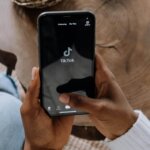Summary:
-
Australia’s new law requires parental consent for under-16s on social media, addressing concerns over youth exposure to harmful content. Influencers support the initiative, advocating for content creator accountability.
-
The legislation reflects the growing awareness of the negative effects of social media on mental health, particularly among teenagers.
-
Australia’s bold move may set a precedent for other nations to prioritize the protection of young people online, emphasizing the need for proactive measures.
Australia’s bold new law, banning children under 16 from accessing social media without parental consent, marks a significant step in addressing the global concern over online content’s impact on youth. Social media is deeply ingrained in teen culture, with daily use exposing them to risks like anxiety, depression, and explicit content. Popular platforms and streamers, such as Twitch and YouTube’s Kai Cenat, often stir controversies that highlight these dangers.
This law is backed not only by the government but also by influencers like Pokimane, who advocate for greater accountability among content creators. Australia’s initiative could become a model for other countries, emphasizing the importance of safeguarding young people’s mental health and well-being.








